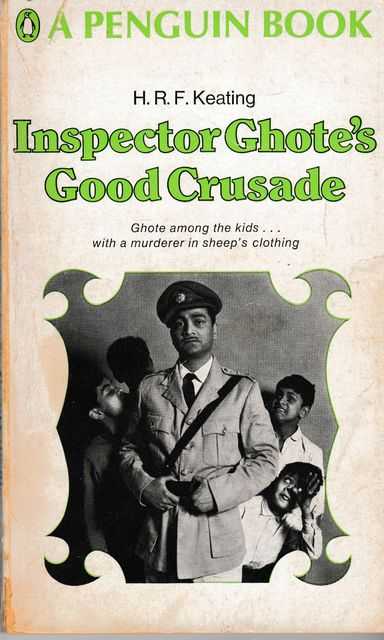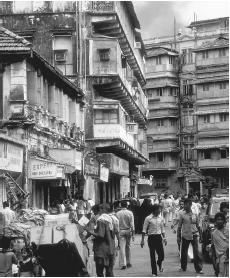This was no ordinary murder, for the victim was Frank Masters, millionaire and philanthropist so the case was bound to attract much public attention. But Inspector Ghote finds that his demands for evidence are met with nothing but lies and evasions. He is also plagued by a gang of street urchins (redients of the facility run by Maters) whose intelligent powers of observation could have been useful instead of which they hinder him at every turn. Despite all this he pursues his investigation, whilst being sent hither and thither, sticking to his principles, and in the end, it is his long-suffering wife who gives him the answer to the mystery.
Finally sitting at his own desk in his own office, proud in his new position in the prestigious Bombay Crime Branch, Ganesh Ghote waits to be assigned to his first high-profile case. Unfortunately the Assistant Commissioner of Police has other ideas and chooses to keep Ghote busy with interminable paperwork. Before Ghote's career finally takes off , he makes a highly unpleasant discovery – the severed head of a lowly peon in his waste-paper basket. Ghote tries to investigate this death against the orders of his superior officer – Crime Branch deals only with crimes committed against people in the higher reaches of society, and because of his lowly status, Bikram’s death was to be ignored. However, as Bikram's severed head had landed on his desk, Ghote feels it’s up to him to find out what happened. His unofficial investigation takes him to the graphically described poorest areas of Bombay while his official case sees him among the rich – trying to disentangle the lives of those where money is more important than morals – until eventually everything in both cases is resolved and, for once, what has been a very difficult relationship with his new boss, the head of Crime Branch, is brought to a satisfactory conclusion.
Inspector Ghote & His World
It was very unusual for an Anglo to write about an Indian detective at the time, and Henry Reymond Fitzwalter Keating actually wrote the first seven novels without ever having been to India. It was not until ten years after he began writing about the country of India that he actually visited - Keating says that he read as much as he could about India, made copious use of maps, and unabashedly eavesdropped on Indians speaking among themselves, to pick up the manner of speaking which is a hallmark of the Ghote series.
Inspector Ghote (which is pronounced “Go-tay”) is an inspector who works with the Bombay Police Department. Inspector Ghote is not cast as a member of the urban, Westernised Indian ‘elite’. Rather, he is portrayed as very much part of the aspiring and hard-working “ordinary” Indian middle class, who has to do battle with everyday life in India as much as with all manner of wrong-doers. Though one suspects that Ghote finds he must spend almost as much of his time battling with the Indian criminal justice system bureaucracy as he does actually fighting criminals. For Ghote frequently finds himself either massaging official egos and ruffled feathers or saddled with cases, matters and paperwork that sidetrack him from his main job.
Timid, respectful, tenacious, with a warm curiosity about the people around him, Ghote's strength was that everyone underestimated him. The reader sympathizes with the Inspector as he tries to use his rather ordinary talents to cope with the problems his superiors call on him to solve. He must strive hard to preserve his own dignity and integrity and at the same time to meet the outrageous demands made on him by his superiors. Readers identify with him, suffer with him, and feel triumphant when he succeeds.
He is married to Protima, who is an argumentative, beautiful, spirited, and loving woman. Together, they have a son named Ved, who is invariably called “little Ved” in the earlier books.
In the 1990s, when Bombay officially became Mumbai, Ghote, whose earlier stories are set in the 1960s and 1970s, became an increasingly outmoded figure in the new India. As the years pass, the villains become less gentlemanly and more menacing, everyday life becomes more bitter and acrimonious (the corrupt politicians stay the same, though).
Keating ended Ghote's career in "Breaking and Entering" in 2000, but then later published two prequels, "Inspector Ghote's First Case" and "A Small Case for Inspector Ghote" both of which takes us back to the very beginning when the humble schoolmaster’s son dreamed of being a Bombay police detective.
Both these books draw us into Ghote's world, and for those with a penchant for classic crime, these are well worth re-discovering. I managed to pick up two books in the series, though it was a pity I could not find more, especially the earlier one.
Further Reading:




No comments:
Post a Comment